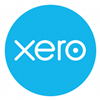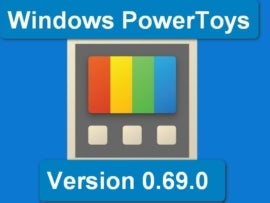-
Sage UK: Best for startups and small businesses
-
BrightPay: Best for security
-
QuickBooks: Best for saving time
-
FreeAgent: Best for reaching insights
-
HMRC Basic: Best free solution for small businesses
-
Xero: Best for employee self-service
-
Moneysoft: Best for benefits features
As UK businesses must perform payroll management, many rely on efficient software solutions to handle their payroll needs. As a result, payroll software products have become popular among organizations of all sizes, with features that streamline the payroll process and minimize the risk of errors.
SEE: Check out the best international payroll services for the bigger picture.
This article explores the top payroll software solutions available for UK businesses in 2023, examining factors such as compliance with UK payroll regulations, ease of use, features, cost and customer support.
Top UK payroll software comparison
Compare the built-in features of the top payroll software providers available for businesses in the UK within the table below.
| HMRC compliance | Employee self-service | Reports | Benefits administration | Pricing | |
|---|---|---|---|---|---|
| Sage UK | Yes | Yes | Yes | No | Pricing begins at £7 + VAT per month. |
| BrightPay | Yes | Yes | Yes | Yes | Plans start at £69 as a special offer for micro employers. |
| QuickBooks | Yes | Yes | Yes | No | Pricing for QuickBooks accounts begins at £14 per month (excl. VAT). |
| FreeAgent | Yes | Yes | Yes | No | Plans for limited companies begin at £14.50 per month + VAT for the first six months. |
| HMRC Basic | Yes | No | No | No | Free to qualifying businesses. |
| Xero | Yes | Yes | Yes | No | Plans start at £14 per month. |
| MoneySoft | Yes | Yes | Yes | Yes | The MoneySoft Payroll Manager starts at £78 + VAT per year for a single company. |
Jump to:
- Top UK payroll software comparison
- Top payroll software UK businesses
- Key features of UK payroll software
- How do I choose the best UK payroll software for my business?
Sage UK: Best for startups and small businesses

Sage provides payroll software solutions for small and medium-sized businesses in the UK. Their cloud-based payroll solution is beneficial for start-ups and small businesses, as it comes with helpful features like a simple four-step pay run process and 24/7, all-year-round expert support.
Sage UK users can process payrolls, as well as perform other actions like filing pensions, processing payroll corrections and generating insightful data reports using payroll and cost data gathered by the system. The solution is also HM Revenue and Customs-compliant and supports secure collaboration between businesses and their accountants, so they can ensure that all processes are performed accurately and compliantly.
Pricing
- The software is free for a three-month trial period. After this, pricing begins at £7 + VAT per month and increases depending on the number of employees.
- 1-5 employees is priced at £7 per month.
- 6-10 employees is priced at £12 per month.
- 11-15 employees is priced at £17 per month.
- 16-25 employees is priced at £27 per month.
- 25-35 employees is priced at £37 per month.
- 36-50 employees is priced at £52 per month.
- 51-75 employees is priced at £77 per month.
- 76-100 employees is priced at £102 per month.
Features
- Executes pay runs in four simple steps.
- Works as an HMRC compatible solution.
- Enables employees self-serve payslips and P60s in-app.
- Reports on and analyzes payroll for data-driven decisions.
- Automatically assesses and enrolls employees into workplace pensions.
- Includes real-time collaborations with accountants.
Pros
- Sage Payroll makes getting started easy with its simple setup and data import.
- The Sage Payroll solution integrates seamlessly with Sage Accounting, which supports various automated features and lets businesses automatically track their payroll data in the Sage Accounting platform.
- Users can make payroll corrections instantly, as the system allows them to make corrections for multiple employees in multiple periods and apply modifications on future pay runs.
Cons
- This is not the fastest payroll solution available and can take up to seven days to clear a prenote.
- The software can be complex, so it may need to be more user-friendly for beginners.
BrightPay: Best for security

BrightPay Payroll Software is a desktop-based payroll solution that is HMRC recognized and supports all Real Time Information submission types with full RTI functionality included as a standard. The payroll software provides a wide array of features for processing payroll, HMRC payments, taxes, additions and deductions and more tasks necessary for UK businesses to pay their workers.
As a desktop-based product, the BrightPay software is highly secure and even provides safe file-handling features like sensitive data encryption, password protection and payroll data backup support. Still, businesses can easily manage their teams, as organizational leaders can use the system to assign employees to departments, record employment data and maintain an employee calendar.
Pricing
- BrightPay’s payroll software is priced through either the Standard plans for individual employers or Bureau plans for payroll service providers. Plans start at £69 as a special offer for micro employers and increase based on the number of employees they have.
Features
- Tax, National Insurance contributions and student loan calculations.
- Multiple payment options for paying employees.
- Employee calendar for scheduling and tracking leave.
- Automatic enrolment pension schemes and traditional pension schemes.
- Recording and analysis of employee expenses and benefits.
- Unlimited subcontractors and all subcontractor types (sole traders, companies, partnerships, trusts) allowed.
Pros
- With BrightPay’s Payroll Journals, users can post data directly to integrated accounting software systems, including Sage, QuickBooks and Xero. BrightPay’s technology includes direct API integration with these and other popular third-party solutions.
- Users can customize several areas of their payroll software by adding employer logos to payslips and generating a fully customizable list of clients on the BrightPay Bureau startup window.
- Users can receive help and customer support through phone and email or they can search for answers through comprehensive online documentation and video tutorials.
Cons
- This is a desktop-based payroll solution for Microsoft Windows and Apple Mac OS X that can only be installed on up to 10 PCs. Cloud features can only be accessed by purchasing the BrightPay Connect cloud add-on.
QuickBooks: Best for saving time

QuickBooks is a popular accounting software service provider for businesses in the UK. Organizations can use the QuickBooks payroll software to gain beneficial time-saving features at a bargain price. The inexpensive cloud-based solution provides payroll plans containing features that simplify the payroll, budgeting and accounting processes for organizations so they can spend less time on payroll and more time leading their teams.
QuickBooks Standard payroll helps UK businesses stay compliant with HMRC submissions, statutory payments and automatic tax code updates. The QuickBooks Advanced Payroll solution provides additional helpful capabilities for performing automatic pay runs, timesheets, expense management and reporting.
Pricing
- Pricing for QuickBooks accounts begins at £14 per month (excl. VAT) for the Simple Start plan, £24 per month (excl. VAT) for the Essentials plan, £34 per month (excl. VAT) for the Plus plan and £70 for the Advanced plan. To access the payroll features, businesses need to purchase the optional Payroll add-on, starting from £0.40/month.
Features
- Automatic pay runs for directors or salaried employees.
- Multiple pension schemes.
- Help articles, webinars, online chat and phone support.
- HMRC-recognised submissions.
- Statutory payments.
- Pensions assessment and auto enrollment.
Pros
- Businesses can save time with custom integrations, enabling them to automatically send payroll costs information to QuickBooks for quick and easy data entry.
- QuickBooks Payroll comes with HR capabilities, including features for managing timesheets, leave, expenses and employee satisfaction.
- Businesses can leverage their data through one of the offered reports or by creating their own.
- The tool can be used to make HMRC-recognised RTI submissions and get automatic updates for tax codes and student loan rates.
Cons
- The “optional” Payroll add-on is necessary to access the payroll features.
Read our detailed review of QuickBooks for more information.
FreeAgent: Best for reaching insights

FreeAgent helps small businesses stay compliant with their payroll processes and contributions. UK users can file the PAYE and National Insurance contributions directly to HMRC through FreeAgent, which calculates the costs automatically, taking the hassle out of the payroll process. With helpful administrative features such as tax filing and connections to related banks and integrated systems, users can stay on top of their payroll and accounting.
A stand-out feature of this software is FreeAgent’s dashboard, which can provide a comprehensive view of their business’s accounting and payroll visualizations at-a-glance. From tracking cash flow to maintaining financial reports, the solution provides many ways for businesses to reach data-driven insights for informed decision-making.
Pricing
- New users can try FreeAgent free for 30 days. After the free trial, pricing is based on the business type and pricing model, with plans for limited companies beginning at £14.50 per month + VAT for the first six months and £29.00 per month + VAT after the first six months.
Features
- Insights and accounting reports.
- Connections with bank feeds and third-party software integrations.
- Automation features.
- Invoices and payment reminders.
- Projects, time, expense and mileage tracking.
- FreeAgent mobile app.
Pros
- Organizations can use the FreeAgent dashboard to reach helpful insights, track their cash flow and assess their business performance so that they can make smarter business decisions.
- The solution allows users to gain intelligent insights through the Radar features, trend-spotting and reminders that are customized for the needs of their business.
- The Admin To-Do List feature helps users stay on track of their administrative actions by grouping outstanding tasks in FreeAgent.
- Businesses are able to quickly and easily view the automatically-built key accounting reports at any time.
Cons
- The solution may be considered expensive compared to its competitors.
HMRC Basic: Best free solution for small businesses

HMRC’s Basic PAYE Tools is a free payroll software offered by HMRC for UK small businesses. While the solution can be a helpful, inexpensive choice for small businesses on a budget, it does come with its limits. It is only available for UK businesses with less than 10 employees and is only designed for users with no more than three clients.
The software is advantageous for small businesses that qualify to use it. It contains features for processing payroll, managing taxes and National Insurance for employees and submitting this information to HMRC. The HMRC Basic PAYE Tools can also be used alongside other payroll software solutions to increase their functionality.
Pricing
- This solution is free to qualifying small businesses within the UK.
Features
- Helps small businesses perform payroll tasks.
- Supports businesses in calculating and submitting the tax and National Insurance.
- Includes employee’s National Insurance number.
- Allows businesses to send an Employer Payment Summary.
- Allows businesses to send an Earlier Year Update for the 2019 to 2020 tax year and earlier.
- The latest version of Basic PAYE Tools checks for updates automatically, usually when the tax year changes or new rules come in.
Pros
- The latest version of Basic PAYE Tools will work with most newer computers and up-to-date browsers, including Windows (Zip, 65 MB), Mac (Zip, 57 MB) and Linux (Zip, 66 MB).
- Users can access the guide to using Basic PAYE Tools for an explanation of how to use the software to start sending payroll information to HMRC.
- Businesses can download and use Basic PAYE Tools for specific tasks if their other payroll software cannot perform them.
- Alternatively, businesses can use the Basic PAYE Tools alongside their payroll software to perform tasks like checking a new employee’s National Insurance number, sending an Employer Payment Summary or sending an Earlier Year Update for the 2019 to 2020 tax year and earlier.
Cons
- The software is only available to businesses with fewer than 10 employees.
- Basic PAYE Tools is only designed for users with no more than three clients.
- Users must be registered with HMRC as an employer and have a login for PAYE Online before they can use Basic PAYE Tools.
Xero: Best for employee self-service

Xero provides a hands-off payroll experience for users with its HMRC-recognised online accounting and payroll software. Organizations and businesses within the UK can use the cloud-based software to simplify their compliance and reporting according to HMRC requirements and perform automated payroll with tax, pension and leave calculations. After paying employees through Xero, the payroll data updates automatically within the business’s accounts, making it easy to track and maintain payroll data and reports.
Xero’s accounting and payroll software also provides power to employees with its employee self-service tools. The solution lets them submit timesheets and leave requests online and view their payroll information, pay stubs and leave balances instantly through the Xero Me employee self-service features on the mobile app or the web.
Pricing
- Xero offers a 30-day free trial. It offers its software in four plans, with the Starter plan priced at £14 per month, the Standard plan at £28 per month, the Premium plan at £36 per month and the Ultimate plan for £49 per month. Xero’s payroll software features can be added to the Starter, Standard or Premium plans for an additional £5 per month for up to five payroll employees and then £1 for each additional employee per month. The Ultimate plan includes payroll features for 10 people, then members must pay the standard price of £1 per month for each additional person.
Features
- VAT return calculation and filing.
- Project tracking.
- Inventory and finance tracking software.
- Intuitive invoicing software.
- Reporting, analytics and metrics tracking.
- Management of fixed assets.
Pros
- Businesses that use Xero for their payroll can pay and receive payments in over 160 currencies with multi-currency accounting, using instant currency conversions.
- Users can create, send and track purchase orders online.
- The system lets users create professional online quotes and send them instantly using Xero software or the app.
- Users can access the payroll learning center for comprehensive webinars, guides, videos and articles on easy payroll processing through Xero.
Cons
- Xero’s accounting software is necessary to access payroll software features.
Read our detailed review of Xero for more information.
Moneysoft: Best for benefits features

Moneysoft is another top payroll software choice for businesses in the UK, as it provides many employee benefits features. The Moneysoft payroll manager product supports UK organizations in providing employee payments and benefits, with features like automatic calculation of student loans, childcare vouchers, Statutory Sick Pay, maternity, paternity and adoption pay, Shared Parental Pay, attachments of earnings and NIC Employment Allowance, to name a few.
Businesses that use Moneysoft can leverage the software’s payroll management capabilities to process their employee payslips and RTI filing. Additionally, the system applies payroll software to simplify various areas of the employer’s administrative responsibilities, including comprehensive reporting, auto enrolment pension reporting and data backup facilities.
Pricing
- The Moneysoft Payroll Manager starts at £78 + VAT per year for a single company, which is for one employer, and can support up to 20 employees or subcontractors. It also can be purchased with multi-company licenses starting at £156 + VAT per year.
Features
- Records Tax Office, bank and pension fund details.
- Includes tax refund funding and statutory pay funding.
- Allows CIS deductions set-off.
- Includes construction industry features for managing subcontractors.
- Contains capabilities for agents, accountants, bookkeepers and bureau features.
- Features expenses and benefits management.
Pros
- The Payroll Manager comes with the latest legislation through automatic updates from the website.
- Payroll Manager helps employers support their teams by providing automatic calculation of maternity, paternity and adoption pay, Shared Parental Pay, Statutory Sick Pay, student loans, attachments of earnings, childcare vouchers, data backup facilities and auto enrolment pension reporting facilities, NIC Employment Allowance and more.
- The Moneysoft solution supports Automatic Enrolment of Workplace Pensions, with direct reporting to the government-backed NEST pension scheme.
- Single and multi-employer versions of the solution are available.
Cons
- Many customers across online review platforms have expressed dissatisfaction with Moneysoft’s customer service support.
Key features of payroll software
Below are a few of the key features that UK organizations should consider when seeking payroll software.
Compliance features
Payroll software should be able to handle processing calculations for various payroll tax requirements, such as filing and paying taxes on time, to ensure compliance and avoid penalties and fines. Checking that the software is up-to-date with the latest laws and regulations is also important to ensure compliance.
Tax filing
Automated tax filing is essential for businesses to comply with tax laws and regulations and to generate and file all necessary tax forms and reports. A good quality payroll software product should automate tax filing processes to reduce errors and help businesses stay on top of their tax obligations.
Custom reporting tools
Customizable reports are important for businesses to gain insights into payroll trends and analyze data from various areas of their operations, such as payroll summaries, tax reports and employee earnings. Generating customized reports on payroll-related data is essential for financial planning and decision-making.
Integrations with accounting solutions
To minimize manual data entry and ensure accurate financial reporting, businesses should choose payroll software that integrates with their existing accounting software. This allows for seamless transfer of payroll data and eliminates the need for duplicate data entry, which can save time and help with the analysis and tracking of payroll expenses.
Employee self-service capabilities
Employee self-service is a useful feature that allows employees to manage their payroll-related tasks, such as viewing pay stubs, tracking hours worked and requesting time off. This feature reduces the administrative workload and gives employees more control over their information.
How do I choose the best payroll software for my UK business?
Businesses within the UK should consider their options carefully in order to select the best payroll software solution for their needs. A beneficial payroll software must be able to cater to the specific requirements of organizations in the UK, which includes handling employee taxes and contributions, following minimum wage laws and generating payroll reports. It’s also important that the software is easy to use and includes features like employee self-service, automated tax filing and data reports. Additionally, the cost of the solution, along with the customer support options and the software’s security, should be taken into account. Most importantly, businesses must ensure that the software complies with UK data protection regulations and remains up-to-date with any changes in UK payroll laws and regulations.
Methodology
This is a technical review using compiled literature researched from relevant databases. The information provided within this article is gathered from vendor websites or based on an aggregate of user feedback to ensure a high-quality review.








